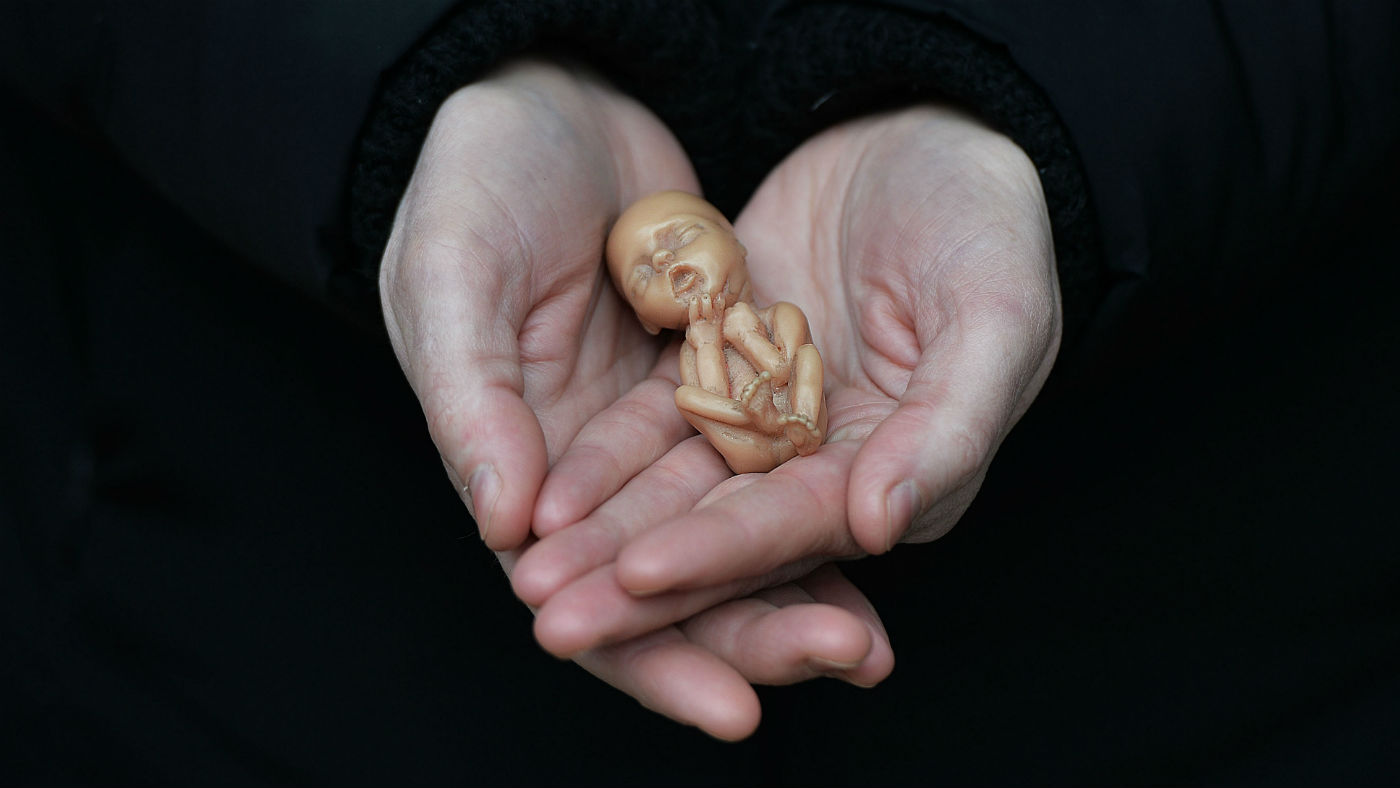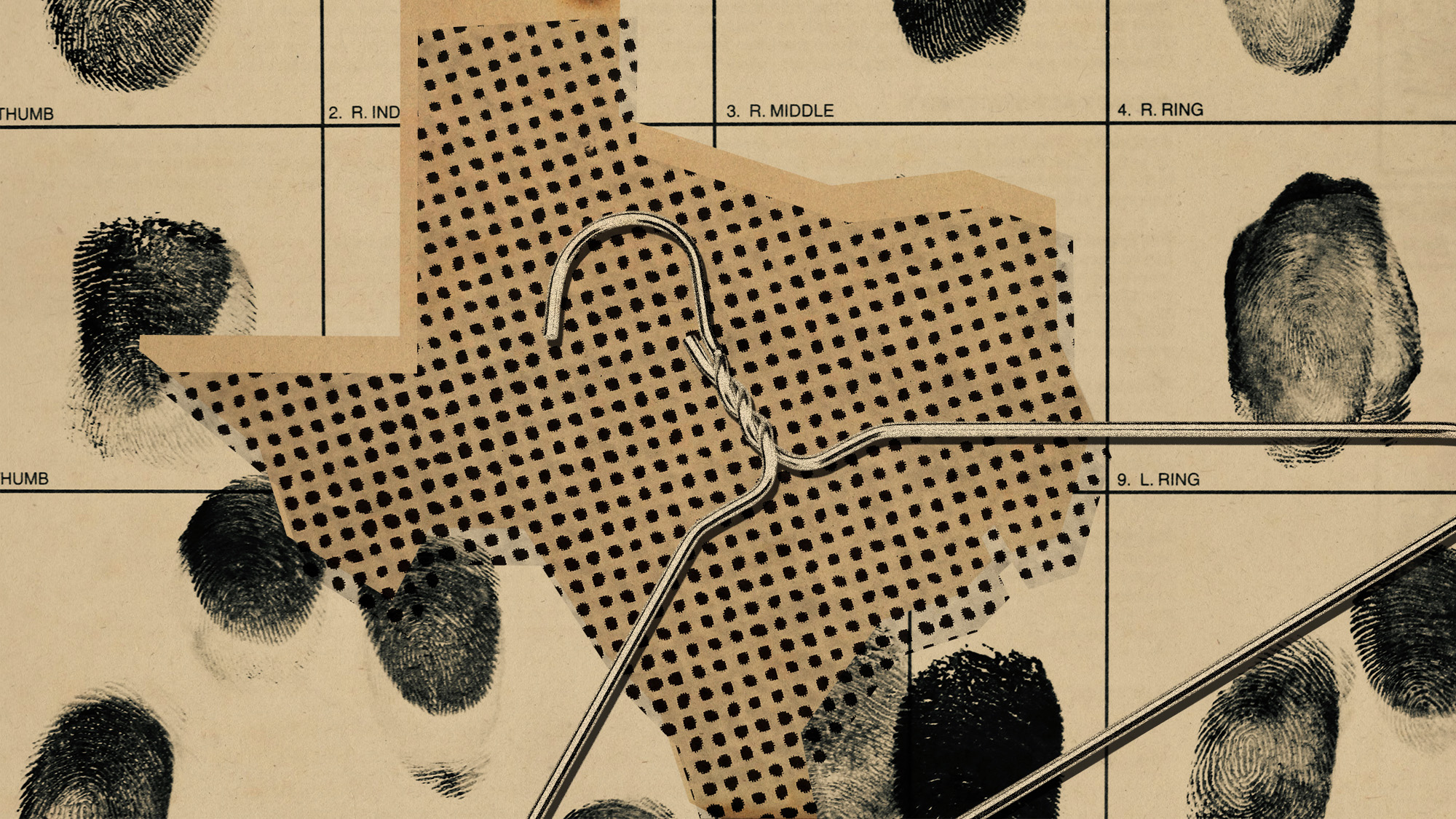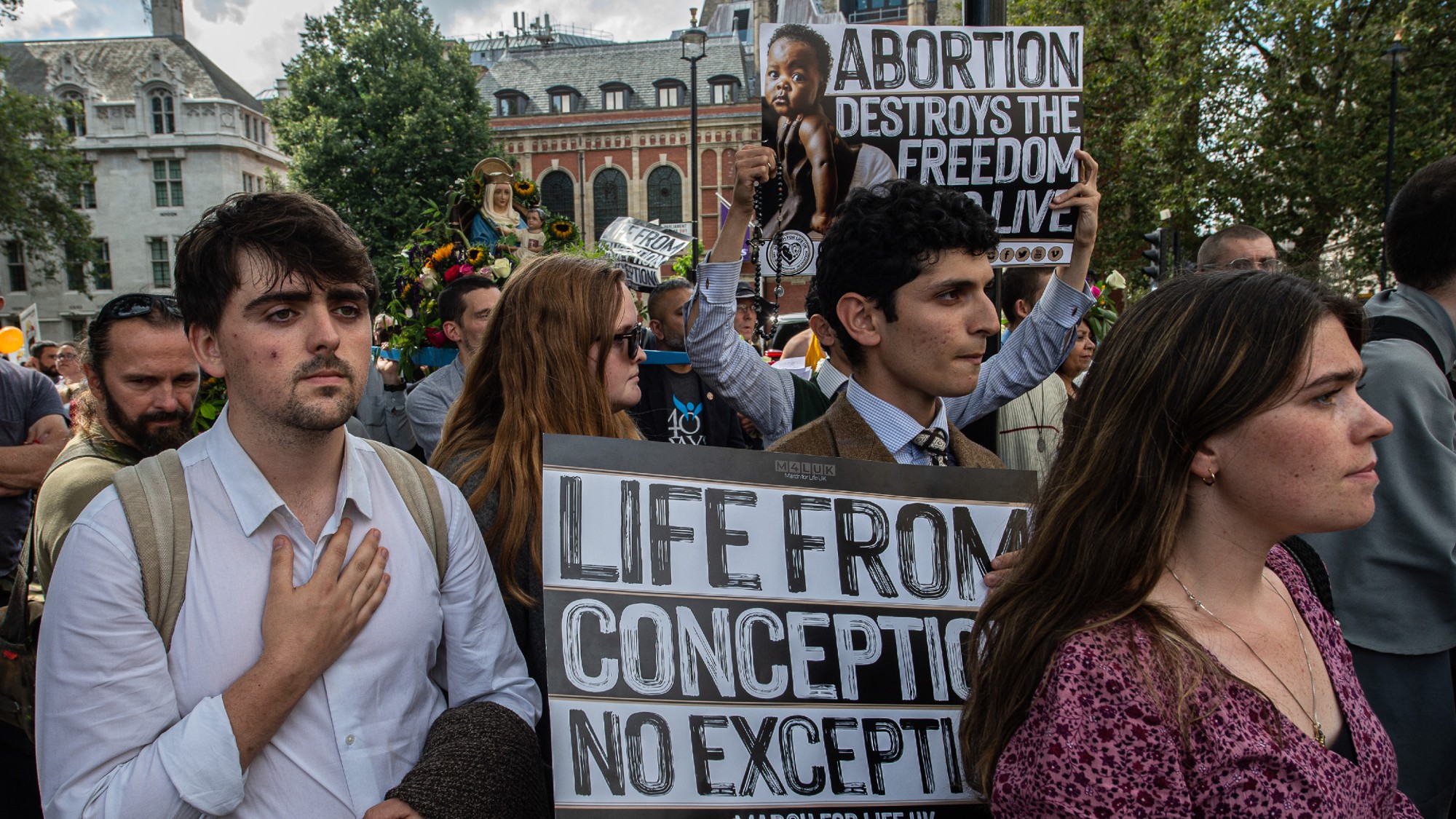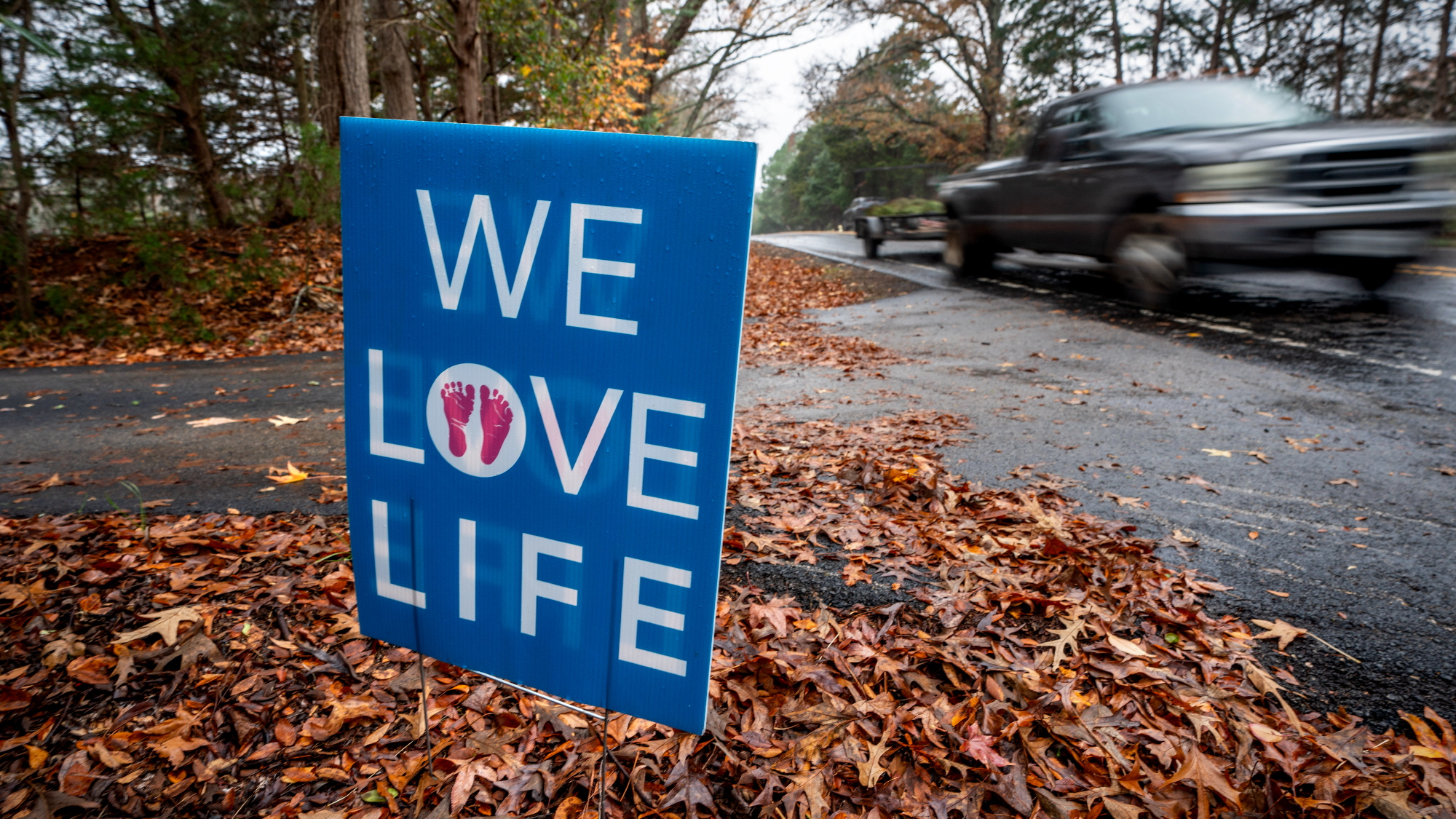Fifty years of legal abortion - and argument
Calls to update UK abortion laws are growing, half a century on

A free daily email with the biggest news stories of the day – and the best features from TheWeek.com
You are now subscribed
Your newsletter sign-up was successful
Fifty years ago today, abortion became legal in Britain. Yet the law still draws criticism from both sides of the debate.
Some pro-choice campaigners are unhappy with the conditions women must meet before they can secure a termination. These include permission from two doctors who must agree the woman’s reasons fall under specific legal grounds.
And while the Abortion Act 1967 made it possible to have abortions under strict conditions, it maintained the illegality of the procedure – a hugely contentious distinction that has come under mounting scrutiny in recent years.
The Week
Escape your echo chamber. Get the facts behind the news, plus analysis from multiple perspectives.

Sign up for The Week's Free Newsletters
From our morning news briefing to a weekly Good News Newsletter, get the best of The Week delivered directly to your inbox.
From our morning news briefing to a weekly Good News Newsletter, get the best of The Week delivered directly to your inbox.
Under exceptions to the 1861 Offences Against the Person Act, if a woman ends her pregnancy without the permission of two doctors, she can be sentenced to life in prison, with doctors facing five years.
This has placed doctors in a compromising position, says The Daily Telegraph, and “for decades, the UK abortion law has worked because doctors have interpreted it liberally”.
Now the British Medical Association (BMA) is demanding changes to the law so that women can access terminations on demand. They say doctors should not face criminal sanctions for providing abortions, nor women for procuring them, in any circumstances, at any stage in a pregnancy, including beyond the 24-week limit.
The issue of termination limits is one of the most divisive. Melanie McDonagh in The Spectator says the “grotesque” 24-week limit allows abortions far too late in pregnancy, and cites an online ComRes survey of more than 2,000 adults conducted for the BBC. It found that 70% of women wanted the current time limit to be shortened.
A free daily email with the biggest news stories of the day – and the best features from TheWeek.com
Others, however, want to relax exisiting restrictions, extending termination limits, tearing up the current legislation and fully decriminalising the practice.
Pro-choice groups and the medical profession have called for abortion to be taken out of criminal law and instead be governed as other medical procedures are in the UK.
Last year a non-binding bill put forward by Labour MP Diana Johnson to decriminalise abortion passed by 30 votes and, significantly, was supported by all the major medical bodies – the BMA, the Royal College of Obstetricians and Gynaecologists, and the Royal College of Midwives.
Another area of contention is Northern Ireland, which is still excluded from the provisions set out in the Abortion Act. The practice remains illegal there except under a narrow set of conditions.
“Even if it is determined that the pregnancy was having an adverse effect on a woman’s mental or physical health,” says HuffPost UK, “it can only be terminated before nine weeks, four days gestation.” Rape, incest and fatal foetal abnormalities are not grounds for a legal abortion in Northern Ireland either.
On the other side of the debate, “perhaps inevitably the slow erosion of the taboo has put new fire into the anti-abortion campaigners”, says Zoe Williams in The Guardian. She cites demonstrations outside abortion clinics that this month led Ealing council to establish safe spaces around a Marie Stopes clinic.
-
 The Gallivant: style and charm steps from Camber Sands
The Gallivant: style and charm steps from Camber SandsThe Week Recommends Nestled behind the dunes, this luxury hotel is a great place to hunker down and get cosy
-
 The President’s Cake: ‘sweet tragedy’ about a little girl on a baking mission in Iraq
The President’s Cake: ‘sweet tragedy’ about a little girl on a baking mission in IraqThe Week Recommends Charming debut from Hasan Hadi is filled with ‘vivid characters’
-
 Kia EV4: a ‘terrifically comfy’ electric car
Kia EV4: a ‘terrifically comfy’ electric carThe Week Recommends The family-friendly vehicle has ‘plush seats’ and generous space
-
 FDA OKs generic abortion pill, riling the right
FDA OKs generic abortion pill, riling the rightSpeed Read The drug in question is a generic version of mifepristone, used to carry out two-thirds of US abortions
-
 Study finds possible alternative abortion pill
Study finds possible alternative abortion pillSpeed Read An emergency contraception (morning-after) pill called Ella could be an alternative to mifepristone for abortions
-
 The great departure: Texas OB-GYNs are leaving the Lone Star State
The great departure: Texas OB-GYNs are leaving the Lone Star StateUnder the radar The state is suffering an exodus of health care professionals, creating more maternity care deserts
-
 More women opted for sterilization after Roe was overturned
More women opted for sterilization after Roe was overturnedUnder the radar New research shows that the trend is especially high in states where abortion was banned
-
 The battle for abortion buffer zones
The battle for abortion buffer zonesThe Explainer A 2023 law banning protests around clinics remains unenforced amid dispute over 'silent prayer'
-
 Infant deaths jumped in Texas after abortion ban
Infant deaths jumped in Texas after abortion banSpeed Read Babies born in states with more abortion restrictions may be likelier to die within a year
-
 OTC birth control arrives amid the battle over reproductive rights
OTC birth control arrives amid the battle over reproductive rightsTalking Points Opill will cost $19.99 a month. Democrats are pushing to make it cheaper.
-
 The race to develop male birth control
The race to develop male birth controlThe Explainer New contraception is being conceived